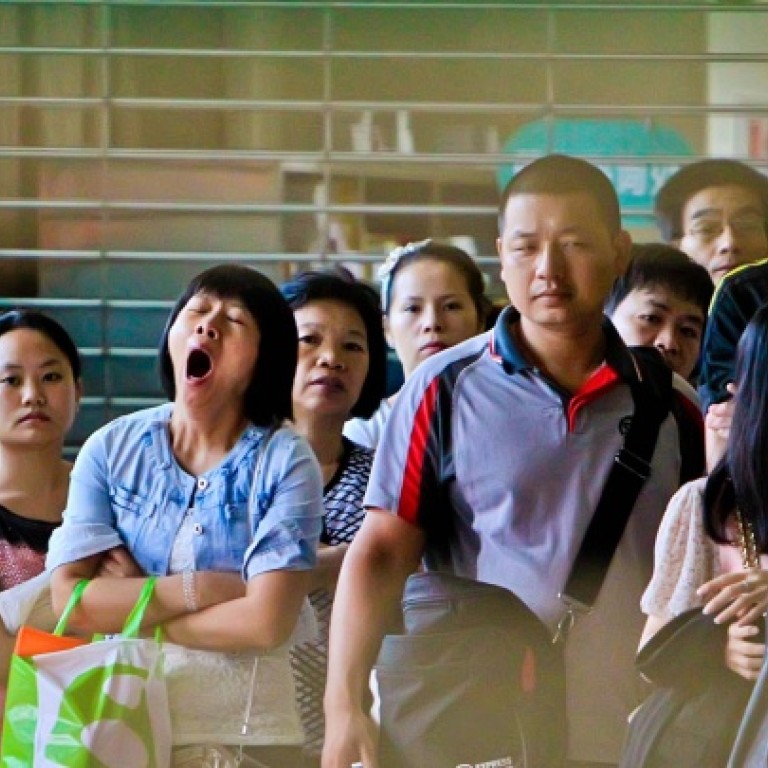
China is like the EU; provinces are its member states
Many business people come to Hong Kong hoping to crack the so-called China market, not appreciating perhaps that it is not "one" but many different markets. Even taking on a province can be a daunting proposition.
Many business people come to Hong Kong hoping to crack the so-called China market, not appreciating perhaps that it is not "one" but many different markets. Even taking on a province can be a daunting proposition. Five of the mainland's provinces have populations bigger than Germany's, the largest nation in Europe with 82 million individuals.
Even people in Hong Kong forget how big neighbouring Guangdong is. With a population of 104 million it is bigger than most Asian countries, the exceptions being India, Indonesia and Japan. With a gross domestic product of US$842 billion it is exceeded only by Japan, India, Australia and South Korea, and is about the same size as Indonesia's (US$847 billion). Its economy is more than twice the size of Thailand's GDP (US$346 billion) and four times the size of the economy of the Philippines.
For a company targeting Britain, there are only two cities with populations of more than one million. Even the US has only nine cities of more than one million people. Guangdong has 21 cities with populations of more than one million. China, says Hong Kong consultancy Strategic Access, is more like the European Union, rather than the US, in that it is a networked group of independent economies that have similar rules but can operate quite differently.
Part of the reason for misunderstandings over the scale, size and nature of the mainland's different economies is the fault of the mainland government, the consultancy says. In seeking to present the mainland as a "unified and harmonious single nation", its leaders are reluctant to dwell on its reality as "a huge, diverse, fragmented federation of poorly integrated economies in which even domestic companies face perilous challenges from domestic competitors".
The outgoing governor of the Bank of England, Mervyn King, said we should stop being so hard on bankers for the practices that led to the global financial crisis. In an interview with Sky News, he said: "Don't demonise individuals here. This wasn't a problem of individuals, this was a problem of failure of a system. We collectively allowed the banking system to become too big, we gave them far too much status and standing in society and we didn't regulate it adequately by ensuring it had enough capital." So, as usual, it's nobody's fault and you can't send the system to jail.
A transport company in Prague, Ropid, has come up with an intriguing wheeze for making the daily commute a more appealing experience. It is thinking about designating certain carriages on its underground railway for singles.
Now there's something for our own MTR to consider. There have been calls for women only carriages. The MTR could have those, as well as singles carriages and possibly male-only carriages. Commuting could be so much more fun, though we do see a few problems. People might be reluctant to get off the train, or behave inappropriately if they mistakenly thought they were in a singles carriage.
A spokesman for Ropid told Reuters it hoped the initiative would lure people out of their cars and on to the rail network. "We want to emphasise that public transport is not only a means of travel but that you can do things there that you cannot do in your car," he said.
Warren Buffett on what makes a good employee. "You're looking for three things, generally, in a person," Buffett says. "Intelligence, energy, and integrity." But it all comes down to integrity, the website Farnham Street reports. If someone doesn't have integrity, it's not worth bothering with them, it says. A lot of people have intelligence and energy, but integrity is a choice: "You weren't born with it; you can't learn it in school."
Apple's retail stores in the US are going gangbusters. On the basis of sales per square foot, Apple's stores perform twice as well as Tiffany & Co, the second best retailer, according to website Asymco. In the latest quarter, store visitors increased by 7 per cent while average revenues per visitor hit a record high of US$57.60 per visitor, taking the average sales of an Apple store per quarter to an impressive US$13 million.

